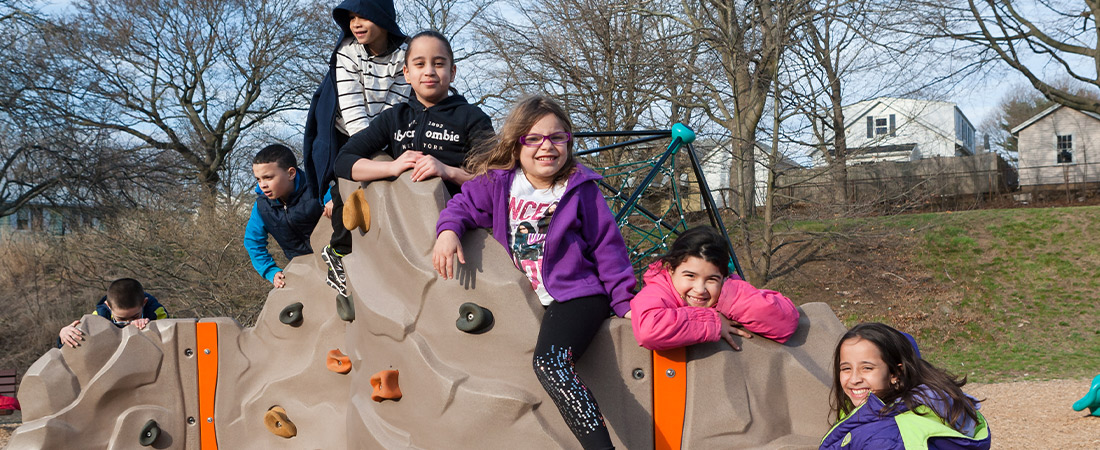
Powerful learning experiences often happen outside of the school day. EDC builds, implements, and evaluates out-of-school and nonformal programs that deliver core civic, educational, and life skills to young people in diverse environments.
In the United States, EDC’s support for out-of-school time (OST) and nonformal learning leverages children’s and youth’s strengths to help them succeed at school, engage in their communities, and lead productive and healthy lives. We design, evaluate, and provide technical assistance on high-quality OST programs that prepare young people for success—whether pursuing social and academic enrichment after school or leaving school and starting a first job.
Internationally, EDC develops and implements programs that support educational and economic opportunities for out-of-school youth. Working within the unique context of each country, we partner with governments, industry, and nongovernmental organizations to provide young people with the skills, knowledge, and opportunities they need to be market-ready and contribute to society.
Related Content
EDC Talks: How Do You Develop High-Quality Out-of-School-Time Programs?
Children can learn a lot from programs that take place outside of school hours.
4 Ways to Strengthen Youth Programs in Conflict and Crisis Areas
Building youth programs in unstable regions can be challenging. Here are four ideas for practitioners.
A Success Story in Senegal
Meet Adama Diedhiou, a participant in EDC’s workforce development program in Senegal.
A Second Chance at School in Mali
In Mali, accelerated education is helping thousands of children get back to school.
3 Ways to Stop the Summer Slide
Want to help kids keep learning this summer? Here are some tips for parents and caregivers.
New Entrepreneurs Launched in Rwanda
EDC’s workforce development efforts in Rwanda are helping young people build the skills for work.
Projects
Resources
Here are a few of our resources on out-of-school learning. To see more, visit our Resources section.
This report details the work of EDC’s Proyecto METAS to improve education for employment, learning, and success in Honduras. Specific challenges to program implementation are discussed, as are innovative solutions.
This report presents findings from the evaluation of the 21st CCLC Program grantees who were active during 2018–2019.
This report is part of a series of publications summarizing what is being learned “on the ground” from projects in more than a dozen countries, and is the product of the pilot phase of the first EQ
The Learning Generation Report presents an action plan to deliver and finance an expansion of educational opportunity for more than 260 million children and youth who are not in school today.
This Employability Study was conducted in Honduras to better understand the characteristics of those youth that are receiving the Career Readiness Certification (CRC) and to what extent youth have
In response to an outbreak of the Ebola virus in Liberia, EDC’s USAID Advancing Youth Project (AYP) developed a set of literacy and numeracy interactive audio instruction (IAI) lessons for radio broadcast.
This brief describes the importance of expanding access to computer science (CS) learning and details EDC’s work to ensure all students have high-quality CS educations.
The USAID Huguka Dukore activity is a 5-year (December 9, 2016-December 8, 2021) youth employment program that will provide 40,000 out-of-school youth, including 34,000 new youth and 6,000 Akazi Kanoze alumni, with market-relevant employability skills and pathways to new or better employment.
This learning series summarizes the results of participant studies in the USAID Advancing Youth Project in Liberia. The studies explored topics in alternative basic education such as leadership,
This report shares the findings from a landscape study commissioned by The Wallace Foundation and conducted by EDC to advance knowledge of how school districts ensure and improve the quality of the
